Transform Your Skin This Season With These 22 Springtime Skincare Hacks

Springtime is the perfect time to rejuvenate and refresh your skincare routine. The change in humidity, temperature, and environmental allergens during this time calls for a shift in how we care for our skin. As the weather gets warmer, we should consider a lighter approach to our skincare regimen to avoid clogging our pores. Here are some of the top skincare tips to implement this spring for a healthy, glowing complexion.
Switch to a Lighter Moisturizer

As the seasons change, so should your skincare routine. Spring’s milder temperatures and increased humidity levels mean your skin may not require the heavy-duty moisturizers that kept it hydrated during the harsh winter months. It’s time to switch to a lighter, water-based moisturizer that absorbs quickly and doesn’t leave a greasy residue. Fresha experts say, “As the weather becomes warmer, too much moisturiser can cause your pores to become clogged, resulting in an oily break-out. To avoid this, it’s better to apply a lighter layer of moisturiser throughout spring; doing so keeps your skin hydrated while reducing the risk of blemishes.”
Stay Hydrated

Hydration is key to maintaining supple, healthy skin, especially as temperatures rise. Drinking plenty of water throughout the day helps to flush out toxins and ensures that your skin remains hydrated from the inside out. Additionally, you can support your skin’s hydration by using products with hyaluronic acid, which can hold up to 1000 times its weight in water, delivering moisture to your skin cells. Keeping your body and skin properly hydrated can help maintain elasticity, prevent dryness, and give your skin a plump, dewy look.
Use Lighter Makeup

As the weather becomes warmer and more humid, heavy makeup can lead to clogged pores and breakouts. Spring is the ideal time to embrace a lighter makeup routine, opting for products like tinted moisturizers, BB creams, or mineral powders that offer a breathable, natural coverage. These lighter formulations not only feel better on the skin but also allow for a more radiant, dewy complexion. Swap out thick foundations for products with hydrating ingredients and a light SPF to protect your skin.
Incorporate Vitamin C Into Your Skincare Routine

Incorporating vitamin C into your skincare routine this spring will have an abundance of benefits. When used alongside SPF, vitamin C serums enhance the performance of SPF products by giving your skin thorough protection against UV rays. The serum can also boost hydration and brightness, giving your skin that sought-after glow.
According to Fresha, overcast weather can be an unexpected cause of sunburn in spring, but vitamin C serums can help soothe painful sunburns and protect against long-term sun damage, making it an essential product in this season’s skincare routine. However, it’s important to note that new products should be gradually introduced to your skincare routine to test how your skin reacts to the change.
Try A Niacinamide Serum

After winter, many people find themselves struggling with dry skin, which is why adding a niacinamide serum into your skincare routine is hugely rewarding. Niacinamide boosts the skin’s hydration and enhances moisture, making this product the perfect comeback from those dull winter months.
As the warmer weather sets in, your face will naturally start to produce more oil, but niacinamide serums also helps to regulate oil production, removing any excess oils from your skin. Fresha recommends using niacinamide in both your morning and evening skincare routine and to apply the product after cleansing and toning. Niacinamide should also be applied before using more acidic serums, such as vitamin C.
Get Enough Sleep

Adequate sleep is essential for skin health, as it’s during sleep that your body repairs and regenerates skin cells. Lack of sleep can lead to a dull complexion, fine lines, and dark circles under the eyes. Aim for 7-9 hours of quality sleep each night to give your skin the best chance to rejuvenate. Establish a relaxing nighttime routine to help signal to your body that it’s time to wind down. Additionally, consider silk pillowcases, which can be gentler on the skin and prevent creasing and wrinkles.
Use a Humidifier

Springtime can still have its fair share of dry days, which can dehydrate your skin and lead to flakiness and irritation. Using a humidifier in your home or office can help keep your skin hydrated. This is especially beneficial during the night when your skin goes into repair mode. A humidifier can also alleviate symptoms of dryness such as itchiness and peeling.
Set Aside Your Exfoliator

As the temperature heats up, it’s incredibly tempting to exfoliate daily to reduce the risk of clogged pores. However, limiting your use of exfoliating acids over the next few months is hugely important. When over-used, exfoliating acids, such as salicylic acid and glycolic acid, can reduce the skin’s natural protection against the sun and can dehydrate your skin, making you more susceptible to skin damage, according to Fresha.
Exfoliating acids should be used in moderation and applied around once a week at most to avoid some nasty sunburn this spring. SPF should always be the last step in your morning skincare routine, so make sure you get your exfoliating out of the way before applying SPF products. Similarly, face scrubs should also be avoided over the next few months. While these products are a great way to remove dead skin cells, they can also increase your skin’s sensitivity to the sun, heightening the risk of skin damage.
Treat Hyperpigmentation

With increased exposure to sunlight during spring, hyperpigmentation can become more pronounced. To address this, incorporate products with ingredients that target dark spots and uneven skin tone, such as hydroquinone, or kojic acid. These ingredients can help to lighten hyperpigmentation by inhibiting the production of melanin. Don’t forget to use a daily sunscreen to prevent existing spots from darkening and new ones from forming. Consistent use of targeted treatments, along with diligent sun protection, can significantly improve the appearance of hyperpigmentation over time.
Focus on Eye Care

The delicate skin around your eyes can be particularly sensitive to seasonal changes. To keep this area looking refreshed and vibrant, focus on eye care by using products specifically designed for the eye area. Look for eye creams or gels with peptides, caffeine, or hyaluronic acid to reduce puffiness, combat dark circles, and hydrate the skin. Since this area is prone to showing signs of aging first, a dedicated eye treatment can help to smooth fine lines and maintain a youthful appearance. Remember to apply these products gently, using your ring finger to tap the product into the skin without pulling or stretching.
Don’t Forget Your SPF

As the months get warmer, it’s hugely important to use SPF products. Incorporating them into your skincare routine is a must to protect yourself from the sun and keep you feeling refreshed this spring.
Fresha experts suggest applying products containing SPF as the last step in your skincare routine to allow your skin to receive maximum protection as you spend more time outdoors. It’s vital to use a high SPF of at least 30 and wait at least 20 minutes after application before going outside.
Don’t Neglect Your Feet

As you start to swap out boots for sandals, it’s important to pay attention to your feet, which may have been neglected during the winter months. Regular exfoliation can remove dead skin cells and prevent calluses, while moisturizing can keep your feet soft and smooth. Look for foot creams that contain ingredients like urea or salicylic acid, which are effective at softening rough patches. If you have persistent dryness or other foot concerns, consider seeing a podiatrist for a professional treatment.
Consider Professional Treatments
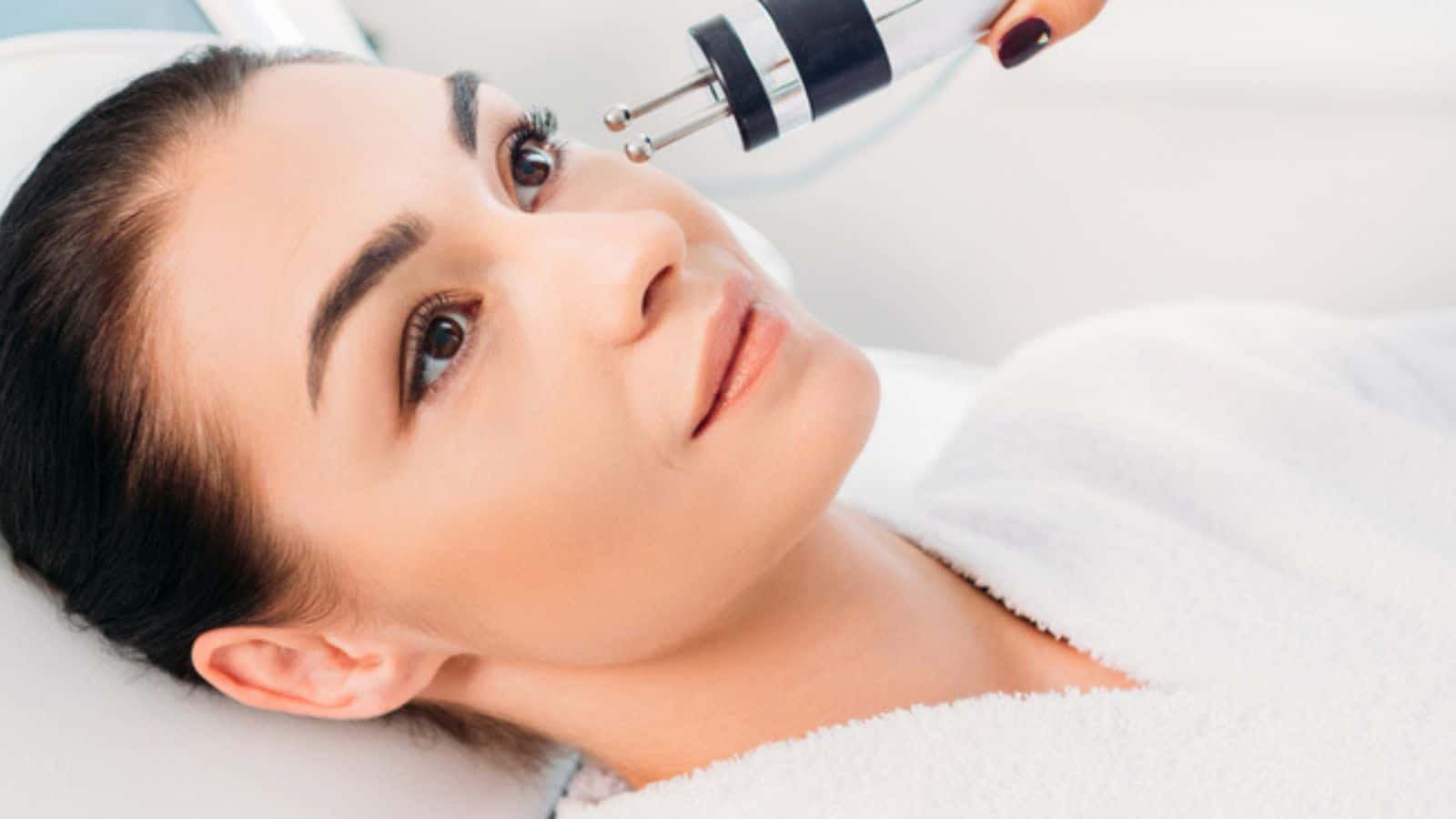
To give your skin a fresh start for spring, you may want to consider professional treatments that can address specific concerns more effectively than at-home care. Treatments like chemical peels, microdermabrasion, or laser therapy can help to rejuvenate the skin by removing dead skin cells, stimulating collagen production, and improving overall texture and tone. Professional facials can also provide deep cleansing, hydration, and relaxation. Remember to always consult with a licensed dermatologist or esthetician to determine which treatments are best for your skin type and concerns.
Mind Your Hands
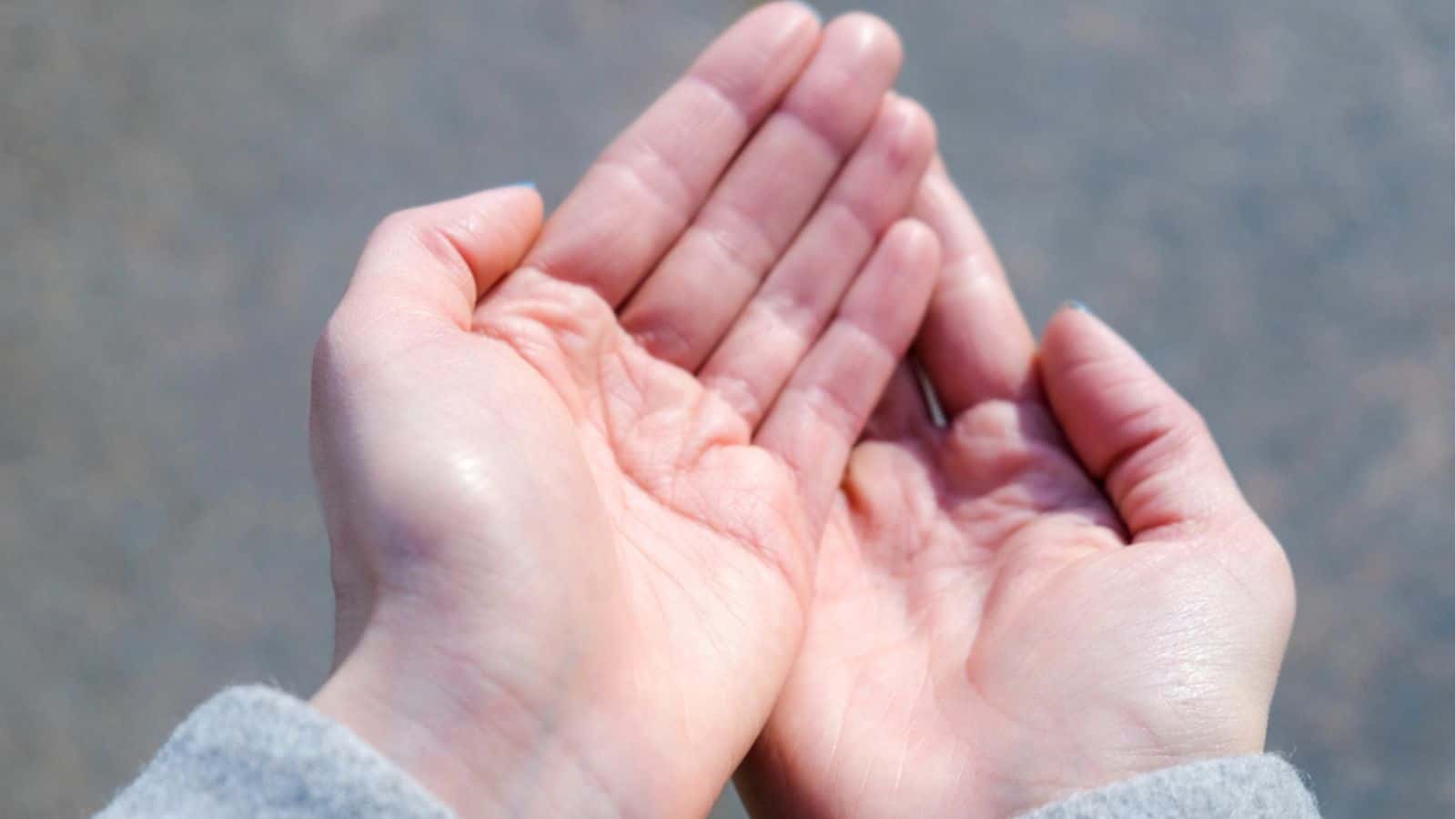
Your hands are one of the most exposed parts of your body and often show the first signs of aging due to constant use and environmental exposure. In spring, it’s important to extend your skincare routine to your hands. Regularly moisturize with a hand cream that contains SPF to protect against sun damage during the day. At night, use a richer cream, possibly with anti-aging ingredients like retinol, to nourish and repair your skin. Remember to treat your hands gently, avoiding harsh soaps and hot water, which can strip away natural oils and lead to dryness and cracking.
Switch To A Gel Cleanser
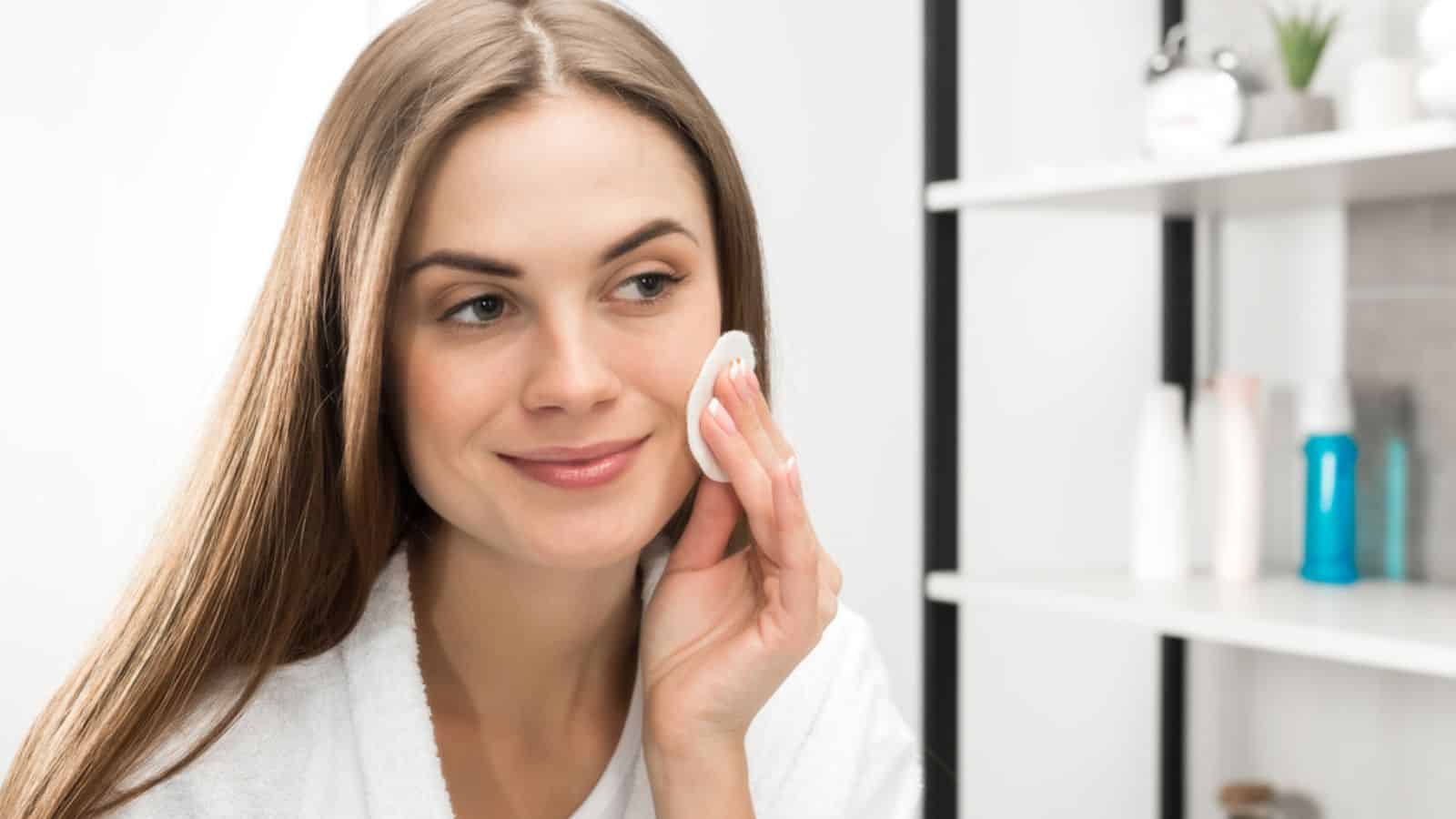
Cleansers are a great way to remove excess oils and dirt from your skin, why is why they are the first step in every skincare routine. However, thick cleansing creams have the potential to clog up your pores during the warmer weather, why is why mild gel cleansers are recommended by Fresha as spring approaches.
Gel cleansers are a light and refreshing way to cleanse your skin, reducing the risk of breakouts over the warmer months. These products can effectively deep clean your skin without stripping away your natural oils, giving you a healthy glow this spring.
Embrace Face Masks

Incorporating face masks into your skincare routine can provide targeted treatments that address specific springtime concerns. Hydrating masks can replenish moisture lost to the changing climate, while clarifying masks can help manage the increased oil production that often comes with warmer weather. Masks containing ingredients like aloe vera, hyaluronic acid, or green tea can soothe and refresh tired, dull skin. Using a face mask once or twice a week can be a great way to pamper yourself and give your skin some extra TLC.
Protect Your Lips
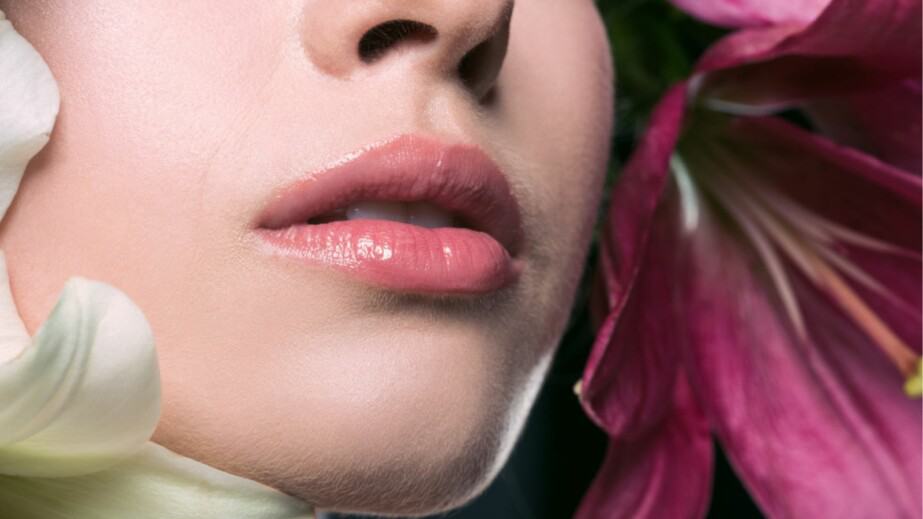
Your lips are just as susceptible to springtime weather changes as the rest of your skin. Transitioning from the cold winter to the warmer spring can leave your lips dry and chapped. To keep them soft and smooth, use a lip balm with SPF protection during the day to prevent UV damage, and a hydrating lip treatment or mask at night to repair and moisturize. Look for ingredients like beeswax, shea butter, and ceramides, which help to lock in moisture and protect your lips from environmental stressors.
Reduce Shower Temperature

While a hot shower can be relaxing, high temperatures can strip your skin of its natural oils, leading to dryness and irritation. To prevent this, take shorter showers with lukewarm water, especially as the weather starts to warm up in spring. This will help to preserve your skin’s moisture barrier and prevent dehydration. After showering, gently pat your skin dry and apply a moisturizer while your skin is still damp to lock in hydration.
Ditch The Cleansing Oils

As the weather start to heat up, your face will naturally begin to produce more oil. As a result, avoiding cleansing oils over the next few months is recommended by Fresha. Applying cleansing oils in warm weather will result in an excessive amount of oil, increasing your risk of a breakout. Because of this, it’s best to dial down during spring and stick to lighter products.
Manage Allergies

Spring means allergy season, which means your skin might get redness, puffiness and irritation, especially around the eyes. Keep allergens at bay by regularly washing your bedding, avoiding touching your face, and using air purifiers to filter out pollen and dust. For skin-specific concerns, look for hypoallergenic skincare products that are free from common irritants and designed to soothe sensitive skin. If over-the-counter options aren’t enough, consult a healthcare provider for prescription remedies or allergy shots that can provide relief during peak allergy season.
Declutter Your Products

Spring cleaning isn’t just for your home; it’s also an opportunity to declutter your skincare collection. Take time to sort through your products, discarding any that are past their expiration date, have changed in color or smell, or no longer suit your skin’s needs. Using expired skincare products can lead to irritation, breakouts, and ineffective results. This decluttering process not only ensures that your skincare regimen is safe and effective but also helps you simplify your routine to include only products that serve a purpose.
Adjust Your Diet

Last but not least, adjusting your diet to include more seasonal fruits and vegetables can have a positive impact on your skin’s health. Spring offers a bounty of fresh produce that is not only delicious but also rich in vitamins, minerals, and antioxidants that support skin health. Incorporate foods like leafy greens, berries, citrus fruits, and nuts into your meals to provide your body with the necessary nutrients to repair and rejuvenate your skin. A balanced diet with a variety of nutrients can also help combat skin inflammation and promote a clear, glowing complexion. Additionally, consider reducing your intake of processed foods and sugars, which can trigger inflammation and exacerbate skin issues like acne and eczema. By nourishing your body from the inside, you’re setting the stage for healthier, more vibrant skin on the outside.
Say Goodbye to Dull Skin: 15 Reasons Why Red Light Therapy Can Lead To Your Ultimate Glow Up
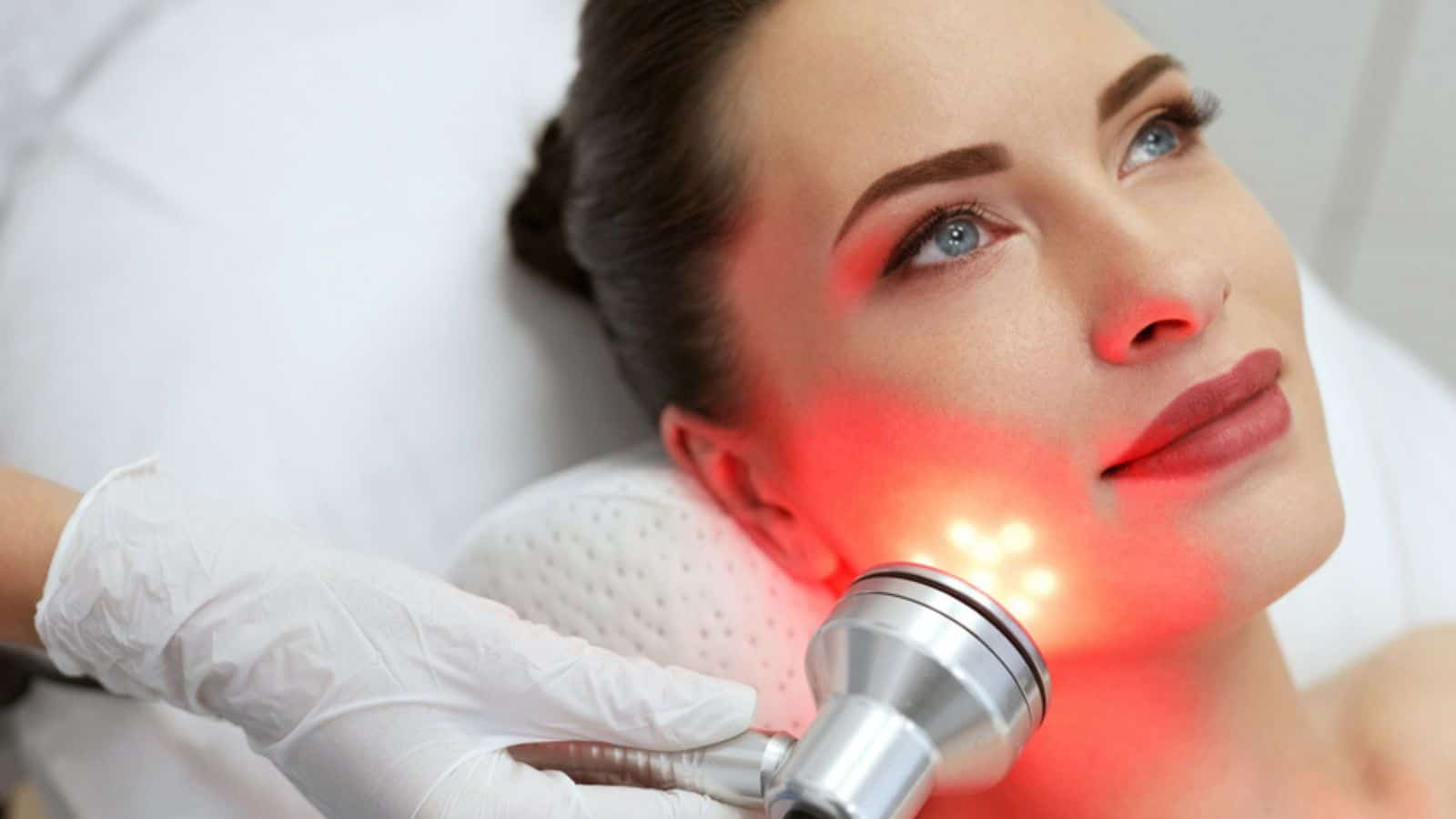
Red light therapy (RLT) uses low-wavelength red light to potentially improve skin conditions and promote a healthy glow. RLT has gained popularity over the years, and it looks like it’s here to stay, with searches for the luxurious beauty trend increasing by 262% over the last five years worldwide, according to Google Trends.
Say Goodbye to Dull Skin: 15 Reasons Why Red Light Therapy Can Lead To Your Ultimate Glow Up
Anti-Aging Skincare: Proven Strategies for Timeless Skin

You may have encountered numerous anti-aging skincare products and routines in your quest for youthful-looking skin. Anti-aging skincare focuses on maintaining and enhancing the health of your skin to combat the signs of aging, such as wrinkles, fine lines, and age spots. By understanding the science behind these products and incorporating them into your daily routine, you can effectively delay and reduce visible signs of aging.





